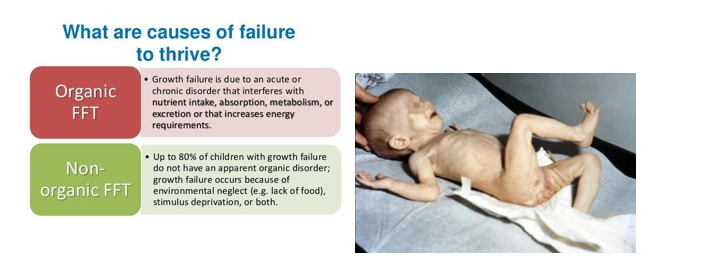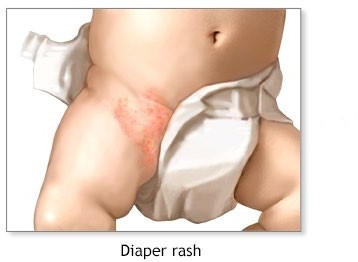The nurse is providing nutrition education to the parents of an infant with failure to thrive (FTT). Which statement made by the parent should the nurse recognize as an appropriate understanding of interventions?
Breast milk provides adequate calories for the child.
Regular syringe feedings promote rapid weight gain.
High-calorie formula encourages increased growth.
Fruit juice increases the child's daily vitamin intake.
The Correct Answer is C
The nurse should recognize that the statement "high-calorie formula encourages increased growth" is an appropriate understanding of interventions for an infant with FTT. High-calorie formula can help infants who are not gaining weight adequately to increase their calorie intake and promote growth.
Breast milk provides adequate nutrition for most infants, but in cases of FTT, the infant may require a higher calorie intake than breast milk can provide. Regular syringe feedings and fruit juice are not recommended interventions for FTT. Syringe feedings can cause aspiration and fruit juice does not provide the appropriate balance of nutrients needed for an infant's growth and development.

Nursing Test Bank
Naxlex Comprehensive Predictor Exams
Related Questions
Correct Answer is A
Explanation
The boy's reported symptoms may indicate stress or anxiety related to his school experience. By asking the boy to describe a typical day at school, the nurse can gather information about the child's interactions with teachers and peers, academic performance, and any other potential sources of stress. This information can be used to develop an appropriate plan of care that addresses the child's emotional and physical needs.
Comparing vital signs or conducting a neurological assessment may not provide useful information in this case, and counseling the parents to pay more attention to the child is not a recommended intervention without first identifying the underlying cause of the child's symptoms.
Correct Answer is D
Explanation
The most significant finding in planning care for this family is that the infant's diaper area shows severe skin breakdown. Severe skin breakdown in the diaper area can be a sign of diaper rash or other skin irritation, which can cause discomfort and disrupt the infant's sleep. Addressing this issue can help improve the infant's comfort and promote beter sleep. The other options (A, B, and C) may also be relevant, but severe skin breakdown in the diaper area is the most significant finding in this situation.

Whether you are a student looking to ace your exams or a practicing nurse seeking to enhance your expertise , our nursing education contents will empower you with the confidence and competence to make a difference in the lives of patients and become a respected leader in the healthcare field.
Visit Naxlex, invest in your future and unlock endless possibilities with our unparalleled nursing education contents today
Report Wrong Answer on the Current Question
Do you disagree with the answer? If yes, what is your expected answer? Explain.
Kindly be descriptive with the issue you are facing.
